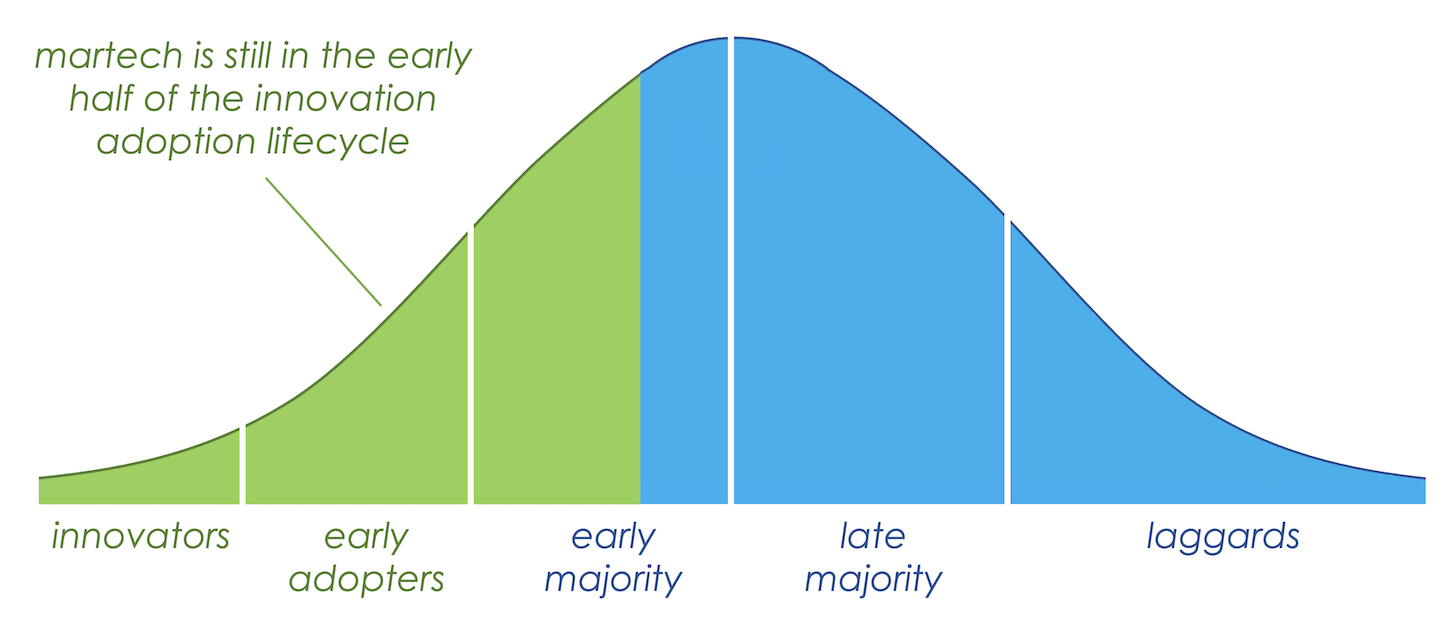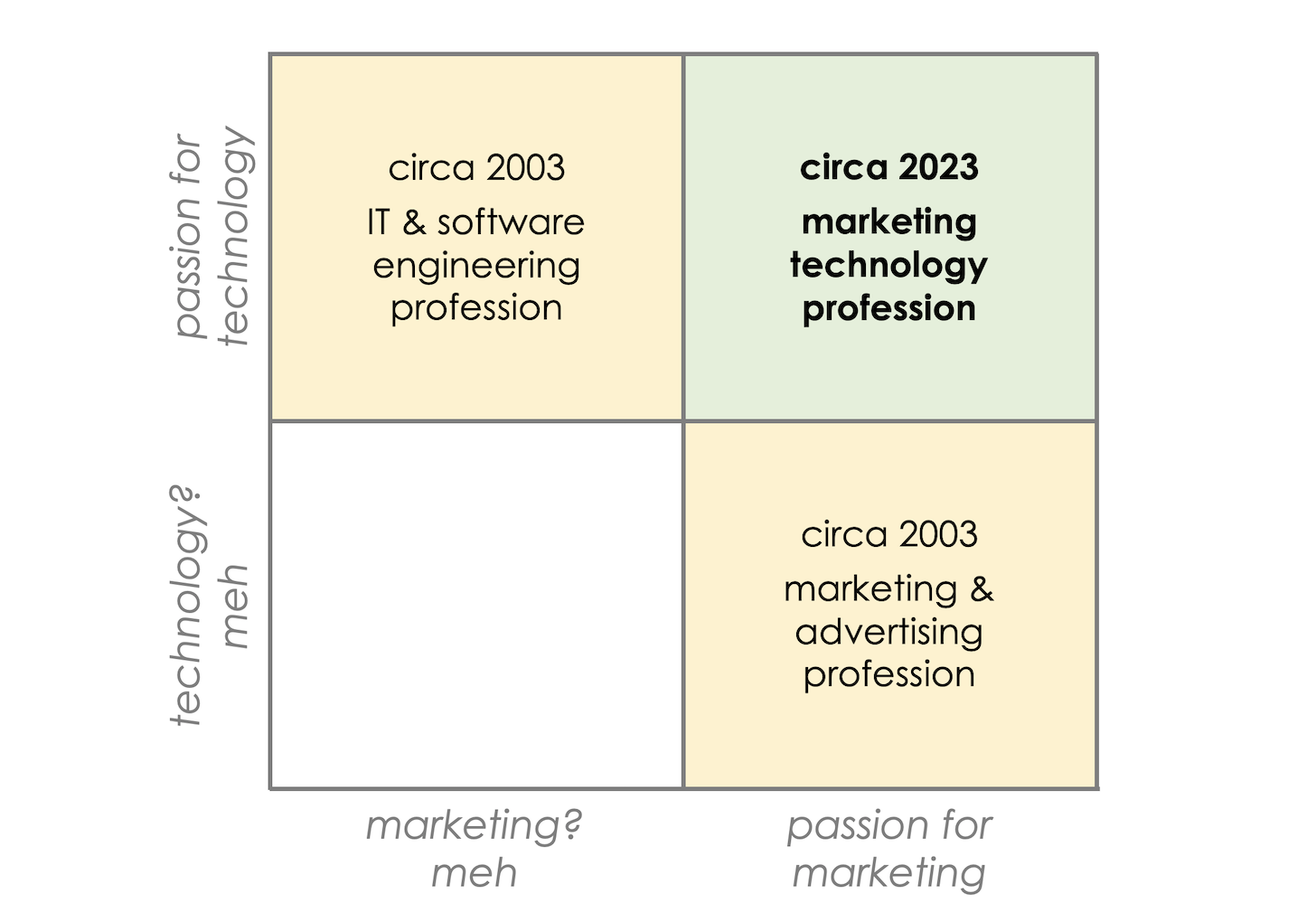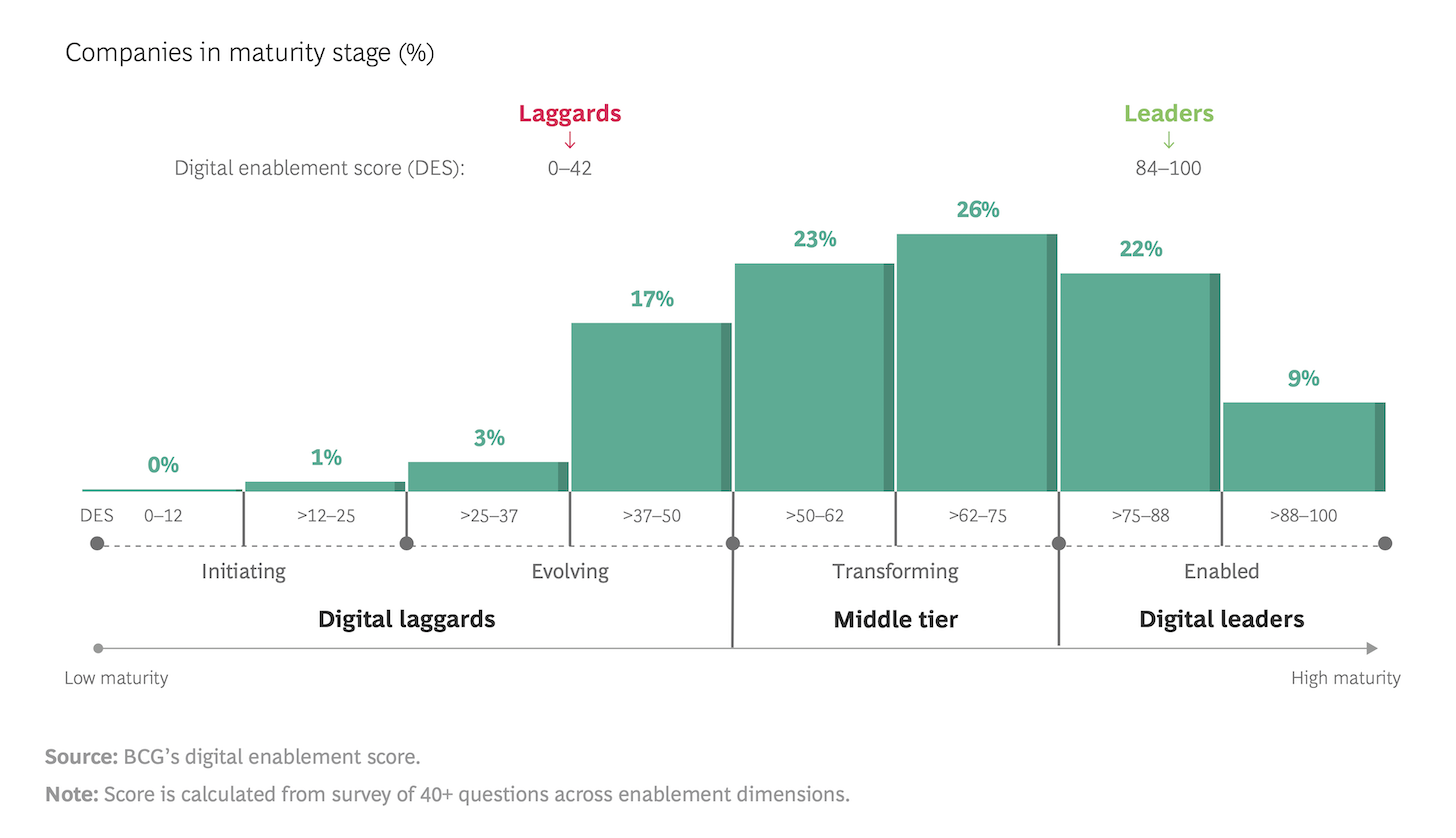
In my previous post, I boldly predicted that we’re on the verge of a whole series of martech innovations: AI, composability, AR/VR, even, yes, “Web3”. While I agree with the pessimists that 2023 will be a challenging year for a lot of martech vendors, I believe this is more of a business cycle bump in the road, rather than the end of an industry. We’re just getting started.
But my real faith in martech’s growth ahead is the profession that is growing up around marketing technology management.
15 years ago, when I started this blog, most marketing roles and most technology roles — IT, software engineering — were on opposite ends of the career spectrum. They didn’t really understand or appreciate what the other did. A Dilbert cartoon from 2010 quipped that marketing was “just liquor and guessing.”

Today, it’s a very different story. A new kind of hybrid professional, applying technical skills in a marketing context, thrives. I’ve called them marketing technologists. They have varying job titles around marketing operations and marketing technology, from technical marketing specialist to full-stack marketing developer, from marketing automation manager to CRM administrator, from martech solutions architect to marketing software engineer.
There are many splendid varieties of marketing technologists.
For my inaugural post in 2008, I did a Google search for the phrase “director of marketing technology”. It turned up 7,520 matches. Maybe not bad. But for already being 14 years into the commercial Internet revolution, it seemed pretty sparse.
Today, that search generates 175,000 results, including a bunch of great job opportunities:

Keep in mind, if you’re reading this post some time in the future, January 2023 was a month of major tech layoffs. Yet firms — very well known brands — are still hiring senior marketing technology leaders. That’s a clear signal of a profession in demand.
With a little help from my friends (thank you, Alexander and Jaime!), we ran some recruiter searches on LinkedIn and found that ~150,000 people have “marketing technology” in their profile. ~680,000 people have “marketing operations” listed.
This is impressive when you look backwards at how far we’ve come.
But when you look forward and realize that there are approximately 333 million businesses in the world, that’s fewer than 1 martech/marketing ops pro per 400 companies. (And some large, smart companies horde dozens of them.)
Of course, not every business needs a dedicated marketing technologist. The state of the art in martech software is making it easier and easier for non-technical marketers to do plenty of digital feats of wonder on their own. (And, in all fairness, today’s generalist marketer is much more tech-savvy than their predecessors in 2003.)
Yet still, as companies grow and become more sophisticated, there are opportunities for them to leverage more advanced technical marketing talent to do things that are ahead of the curve — and ahead of their competition.
My best guess, shown in the adoption curve at the top of this page, is that marketing technologist careers have “crossed the chasm.” They’re not just for early adopter companies that have been digital leaders. They’re in the mainstream of the early majority. But I think they’re still less than halfway penetrated in the global business community.
I admit, this estimate is influenced by the many anecdotes of companies I talk to that still haven’t gotten their arms around marketing operations as a core pillar of their marketing capabilities. But it’s also based on the approximate ratio of martech/marketing ops profiles relative to the total number of businesses in the world.
Not coincidentally, it also lines up with this research from Boston Consulting Group interviewing ~2,000 companies on the current state of their “digital transformation”:

Most are still in the process of transforming. I’m willing to bet that in that journey, as they identify opportunities to significantly improve the efficiency of their marketing efforts and the digital experience their prospects and customers have with them, they’ll be seeking martech talent.
So as a first-order effect, I believe the future for marketing technology and operations careers is incredibly bright.
But as a second-order effect, I believe this is a tailwind for the martech vendor industry too. Many great martech products require a relatively mature marketing operations capability in order to fully harness the power of what they can enable. The more martech talent there is, distributed across more businesses invested in these capabilities, the larger the market for their technologies will be.
Get chiefmartec in your inbox
Join 42,000+ marketers and martech professionals who get my latest insights and analysis.